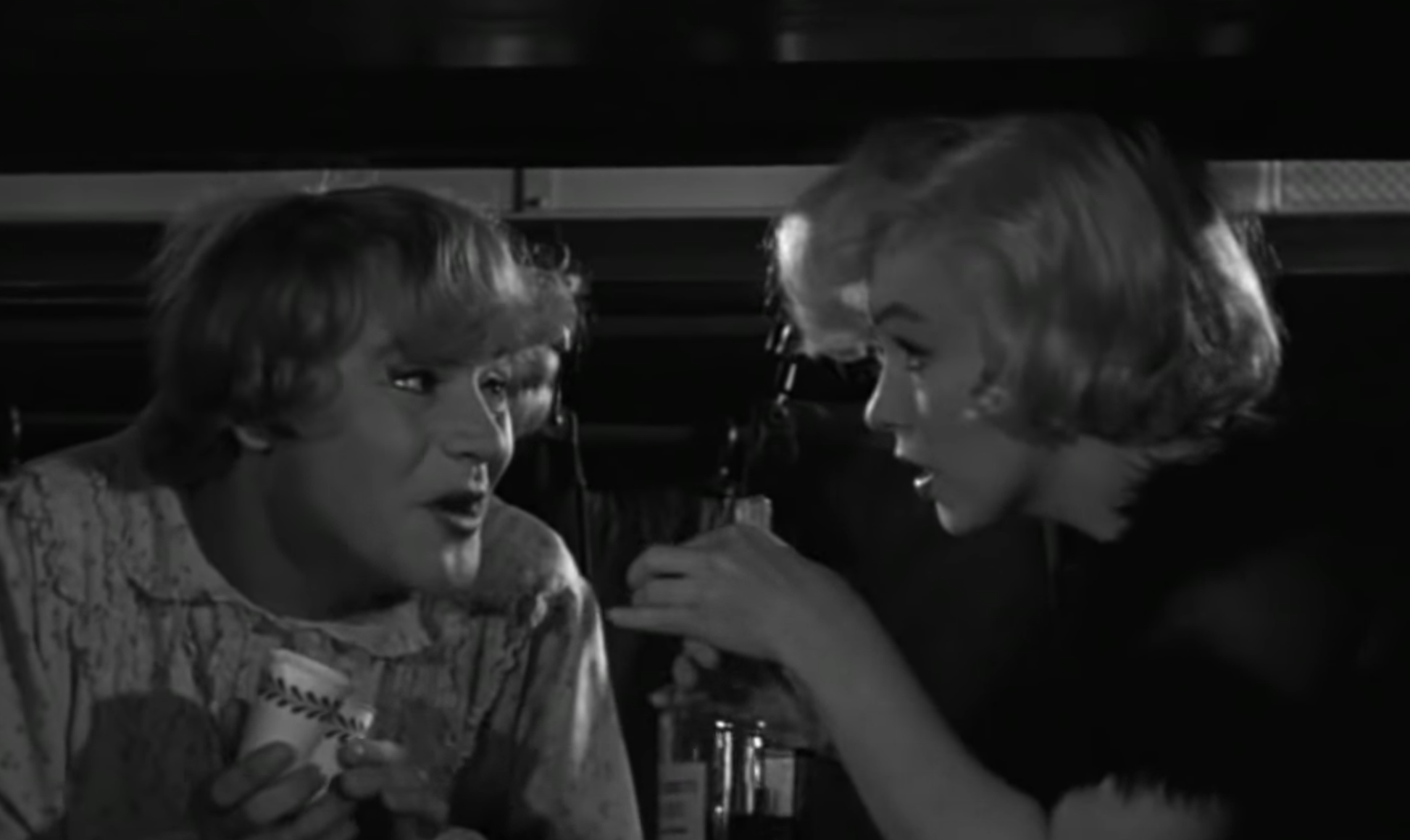My honest opinion of Jack Lemmon (1925-2001) is that he was always an engaging actor and sometimes an extraordinary one, but his performances began to feel overly neurotic and mannered when he hit his late 30s, or roughly from ’64 onward. His best period began with Mr. Roberts (’55) and ended with The Fortune Cookie (’66) — an eleven-year stretch. His peak years amounted to only four — Operation Mad Ball (’57) to Some Like It Hot (’59) and The Apartment (’60).
Posted on 9.8.19: “Lemmon was the hottest guy in Hollywood after starring in the one-two punch of Some Like It Hot (’59) and The Apartment (’60), both directed and co-written by Billy Wilder. Because the latter mixed ascerbic humor and frankly sexual situations, Lemmon was offered almost nothing but frothy sex comedies for five years following The Apartment.
The only decent film he made during this period was Blake Edwards‘ Days of Wine and Roses (’62).
“The sex comedies were The Wackiest Ship in the Army (’60), The Notorious Landlady (’62), Irma la Douce (’63, minor Wilder), Under the Yum Yum Tree (’63), Good Neighbor Sam (’64) and How To Murder Your Wife (’65). He also costarred that year in The Great Race, a period costume comedy about arch humor, empty artifice and scenic splendor.
“Lemmon finally broke out of that shallow, synthetic cycle with Wilder’s The Fortune Cookie (’66). Not grade-A Wilder but certainly half-decent, and a great boost for Walter Matthau. And then Luv, The Odd Couple, The April Fools, The Out-of-Towners, Kotch, Avanti! and Save the Tiger. And then he hit another wall with Wilder’s The Front Page.
“The Lemmonisms are all over Save The Tiger (’72), but five or six scenes in that film are true and on-target, and that ain’t hay. His performance in The China Syndrome also made me snap to attention. Ditto Ed Horman in Missing.”
I relate to the Lemmon profile in David Thomson‘s “The New Biographical Dictionary of Film” (2002 edition), page 513:
“I have to confess that sometimes one squeeze of Lemmon is enough to set my teeth on edge. There’s no doubt that, as a younger actor, Lemmon could be very funny. He is very skilled, meticulous and yet — it seems to me — an abject, ingratiating parody of himself.
“Long ago worry set in. The detail of his work turned fussy, nagging and anal. His mannerisms are now like a miser’s coins. There have been a few films — like James Foley‘s Glengarry Glen Ross (’92) — that used this demented worryguts as necessary material. And Lemmon is very good in that film. But far too often, he stops his own roles and starts preaching anxiety, leading everything away from life and into the jitters.”

